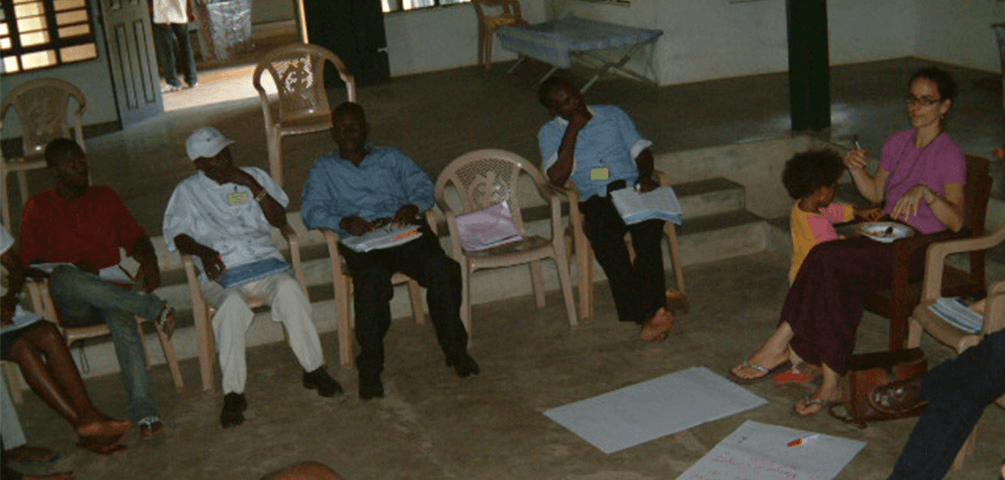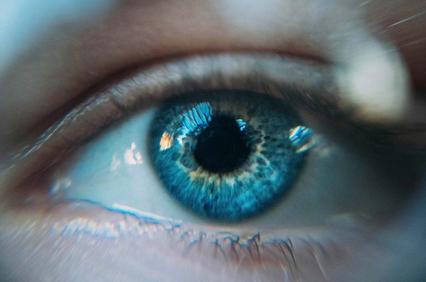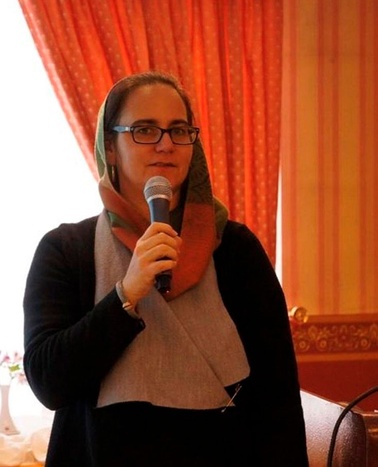
Simona Costanzo Sow
I feel like a citizen of the world. I’m German-Italian, my spouse is Senegalese and have lived in France for a decade, while also having traveled and worked in many different countries throughout my career. I received a merit-based scholarship from the Friedrich Ebert Foundation for my master’s, which I carried out at the University of Passau in Germany. I was subsequently awarded another scholarship from the foundation to pursue my PhD from the Technical University Munich—one of the German universities belonging to a cluster of excellence—which focused on migration studies from the perspective of human geography. In general, I consider myself to be a curious person and have always been interested in gaining broad perspectives on various issues. At the core of everything I do is an overarching passion to make a positive difference in this world.
“Do what you love,” she advises. “Always question everything and try to find better solutions. Use your privilege to make this world a better place. Draw on the collective intelligence of your peers and partners and believe in yourself.”
Simona describes herself as a curious person, but it’s her passion for her work, her studies and for people that truly defines who she is. This passion is revealed in every aspect of her life, and goes so far as to frame her philosophical approach.
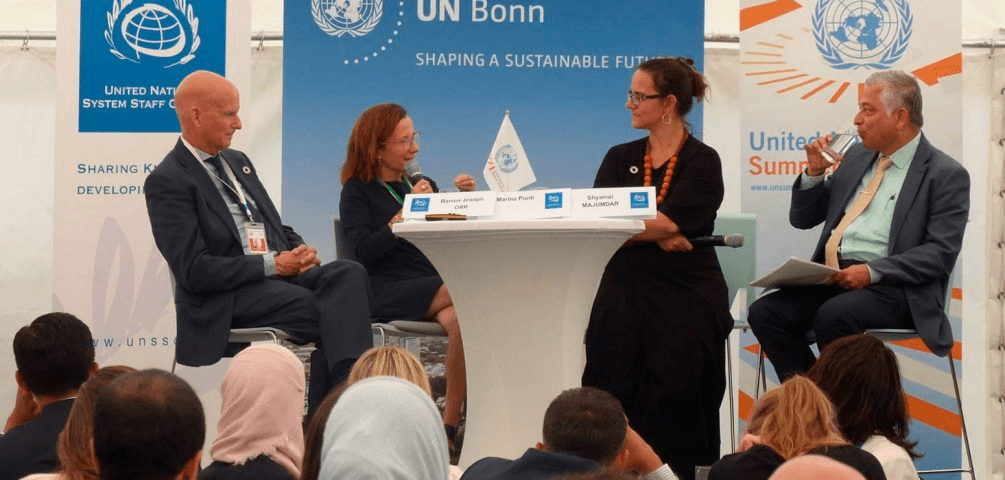
Simona at the United Nations Summer Academy, August 2018, credit UNSSC
The most noteworthy evidence of this passion is in how she spends her free time. When not working for the UNSSC, Simona acts as the president in a voluntary capacity of the Bonn Institute of Migration Studies. Providing services and researching the reality of the lives of refugees and migrants in Germany, she describes this work as an opportunity to shape policy and provide grassroots support for integration.
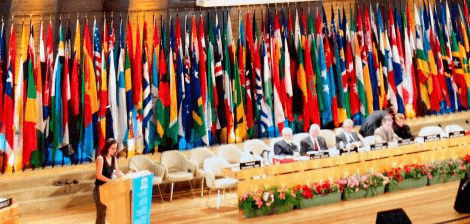
Simona speaking to the UNESCO General Conference, Paris, October 2005. Picture credit: Marco Paoli, CCIVS.
Indeed migration is one of the four key areas of her specialization, along with civic engagement, learning and training, and sustainable development. Claiming that these fields chose her, rather than the other way round, she describes them all as links in a chain that also connects her work with her leisure activities. They give her the broad perspective she’s been looking for since leaving school, allowing her to “stick her nose in to different subjects and apply them to the real-world challenges at hand,” as she puts it.
Simona understands these challenges very well, having seen them first hand. Before coming to IE University as a visiting professor, her career took her all over the globe. Whether working in advocacy for the United Nations Volunteers program, or directing global volunteer and civic engagement services for CCIVS – a global Paris – based CSO, she directed – she has been very close to local communities. She spent several months working with UNESCO in the West Bank and Gaza at community centers, for example, with colleagues she describes as incredibly resilient and committed.

Simona during a networking meeting in Kordiabe, Ghana to create a West African Volunteer network with various organizations from different West African countries, 2007. Simona attended as the Director of CCIVS. Credit: CCIVS.
Through these experiences, she has come to value education in all its forms. While feeling privileged to have received an outstanding formal education, she has learned to be humble before the knowledge and experience of others—something she takes very seriously. Simona recognizes that people often underestimate their own value if they don’t have a formal academic stamp to back up their experience and expertise.
She works hard to combat this in order to give others the tools and courage to trust themselves and “take their place in society,” regardless of their academic qualifications. In Simona’s view, this is one of the key aspects of the 2030 Agenda. The Sustainable Development Goals, she says, require a fundamental paradigm shift, incorporating local perspectives and knowledge into their implementation if they’re to be achieved.
It’s this type of wider perspective that she brings to the classroom at IE University. She believes that a broad mindset is key as today’s challenges cannot be solved with the expertise of one particular subject. She encourages outside-the-box thinking, and drawing on approaches from other disciplines. This, mixed with a collaborative approach to finding pragmatic solutions and straightforward explanation, characterizes her teaching.
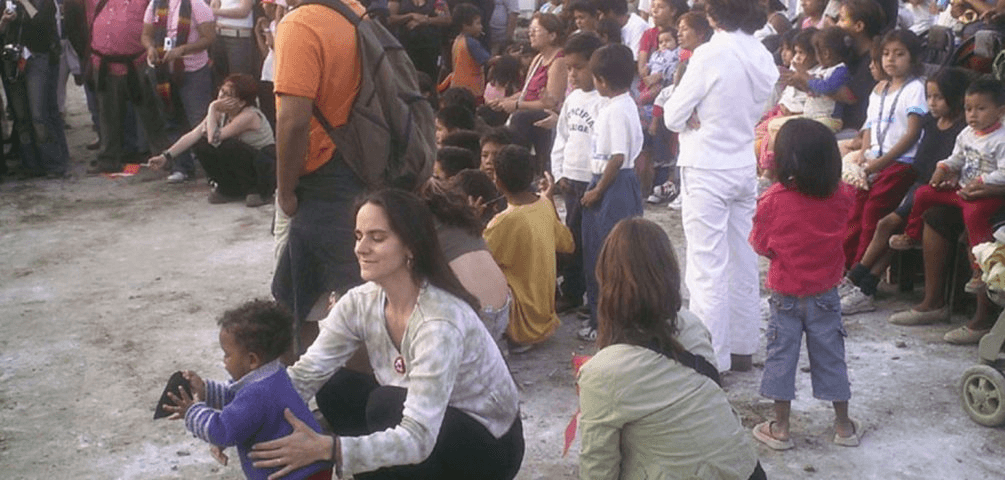
Simona engaged in local community work, visiting a project in the outskirts of Lima in 2005. She was joined by the Brigada de los Voluntarios Bolivarianos del Perú, from whom Simona received a medal of honor.
The diversity of her students helps in this regard, broadening their minds in discussions about volatility, disruption, complexity and dealing with the unforeseen. When asked what advice she’d give to a future student of the program, her answer is unequivocal and reflects that passion he has for her field.
“Do what you love,” she advises. “Always question everything and try to find better solutions. Use your privilege to make this world a better place. Draw on the collective intelligence of your peers and partners and believe in yourself.”
SIMONA'S ARTICLES
SIMONA'S ARTICLES
HARMONY AND THE ORIGIN OF SUSTAINABILITY
As Antoine de Saint-Exupéry once said, “A goal without a plan is just a wish.” The 17 Sustainable Development Goals set out in the United Nations 2030 Agenda are a roadmap for addressing the most serious threats facing the world today. Our entire planet must now come together to tackle this challenge.
GLOBAL AFFAIRS | SUSTAINABILITY
